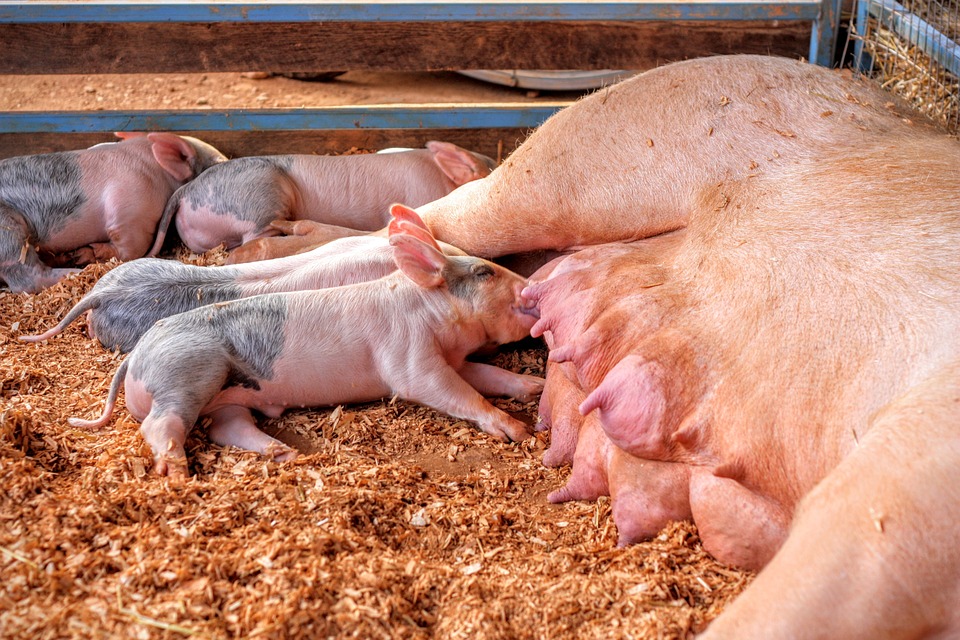Living off the grid has been a beautiful experience that has allowed me to connect with nature in a way that is truly special. One of my favorite aspects of sustainable living is gardening and farming in a way that supports biodiversity. By choosing plants that are not only beneficial for me but also for the ecosystem around me, I am able to create a thriving and diverse garden that is full of life. In this article, I want to share with you 10 sustainable garden plants that you can incorporate into your own garden to support biodiversity and create a more harmonious environment for all beings.
1. Milkweed
Milkweed is a must-have plant for any sustainable garden. Not only does it attract pollinators like bees and butterflies, but it also serves as a host plant for monarch butterflies. By planting milkweed in your garden, you are helping to support the declining monarch butterfly population and create a haven for other pollinators as well.
2. Purple Coneflower
Purple coneflower, also known as echinacea, is not only a beautiful and hardy perennial plant, but it also attracts a wide variety of pollinators like bees and butterflies. It is a great addition to any garden looking to support biodiversity and add a pop of color to the landscape.
3. Sunflowers
Sunflowers are a classic addition to any garden, and for good reason. These bright and cheerful flowers not only brighten up your garden but also provide food and habitat for a variety of birds and insects. Sunflowers are easy to grow and can be a beautiful addition to any sustainable garden.
4. Bee Balm
Bee balm, also known as monarda, is a favorite of bees and other pollinators. Its fragrant blooms and vibrant colors make it a beautiful addition to any garden, while its nectar-rich flowers provide a valuable food source for bees and butterflies. Bee balm is a great way to support biodiversity in your garden.
5. Wild Bergamot
Wild bergamot, also known as bee balm, is a native plant that attracts a wide variety of pollinators. Its aromatic leaves and vibrant flowers make it a beautiful addition to any garden, while its nectar-rich blooms provide food for bees, butterflies, and other pollinators. Wild bergamot is a great plant for supporting biodiversity in your garden.
6. Wild Lupine
Wild lupine is a gorgeous native plant that is perfect for supporting biodiversity in your garden. Its vibrant blooms attract butterflies and bees, while its nitrogen-fixing roots help improve soil health. Wild lupine is a great addition to any sustainable garden looking to support native wildlife.
7. Yarrow
Yarrow is a versatile plant that is great for supporting biodiversity in your garden. Its flat-topped clusters of small flowers attract a wide variety of pollinators, while its aromatic foliage repels pests. Yarrow is a great addition to any garden looking to support a diverse array of wildlife.
8. Liatris
Liatris, also known as blazing star, is a striking plant that is beloved by butterflies and bees. Its tall spikes of purple flowers add height and drama to any garden, while attracting pollinators and beneficial insects. Liatris is a must-have plant for any garden looking to support biodiversity.
9. Goldenrod
Goldenrod is a native plant that is essential for supporting biodiversity in the garden. Its bright yellow blooms attract bees and butterflies, while its seeds provide food for birds and other wildlife. Goldenrod is a beautiful and beneficial addition to any garden looking to support native pollinators.
10. Joe Pye Weed
Joe Pye weed is a towering native plant that attracts a wide variety of pollinators, including bees, butterflies, and hummingbirds. Its pinkish-purple blooms add color and interest to the garden, while providing food and habitat for a diverse array of wildlife. Joe Pye weed is a fantastic plant for supporting biodiversity in your garden.
Pro Tips:
– Plant a variety of native plants to attract a diverse array of pollinators and wildlife to your garden.
– Avoid using pesticides and herbicides in your garden, as they can harm beneficial insects and disrupt the ecosystem.
– Leave some areas of your garden wild and untamed to provide habitat for wildlife and create a more natural environment.
– Consider incorporating a water feature, like a birdbath or small pond, to provide drinking water for birds and other wildlife.
In conclusion, supporting biodiversity in your garden is not only beneficial for the environment but also for your own well-being. By incorporating these 10 sustainable garden plants into your landscape, you can create a thriving and diverse ecosystem that is full of life and beauty. So roll up your sleeves, grab your gardening tools, and get ready to plant a garden that supports biodiversity and brings joy to all who visit.



